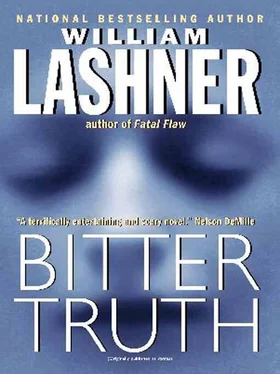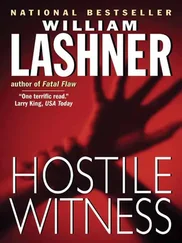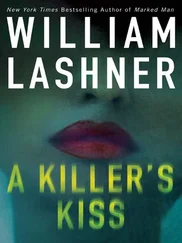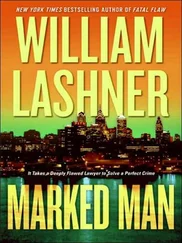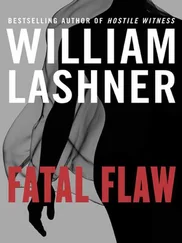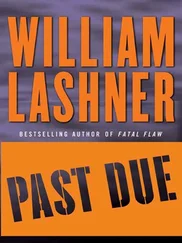I fell to my knees in the dirt and wept over her. I reached down and hugged her bloody garment to my chest. I placed my cheek on the dead girl’s belly and felt the cold where there had once been two precious lives .
While I was weeping my pretty and proper fiancée explained to me the scandal and the ruin that would erupt if the world learned of my affair with the younger sister, of her pregnancy, of the horrible accident and the woman’s death. I could still save my family’s business, she said, save myself from the scandal, save the younger sister’s memory from disgrace. I could still save myself, she said, from a life of poverty. It took me no more than ten minutes to decide. I wrapped my beloved in my coat and dug a grave with the shovel, the shovel, the shovel, I dug a grave with the shovel and buried the suitcase and my beloved beneath mounds of wet black earth .
I was married in a ceremony I don’t remember for all the brandy. My bride and I left for Europe the next day on a great ocean liner for a four-month journey that I don’t remember. The only sights I sighted in Europe were the bars and the pubs. When we returned to Philadelphia I found a gentlemen’s drinking club where I could hide from my wife and houses where I could consort with my fellow whores. We had a son, my wife and I, borne of deception and anger and violence, and after that I had nothing to do with either. Life in Philadelphia had grown far too bleak to bear. And as a topper, as should have been expected, my dear father-in-law sold off the family business from underneath us, taking another fortune for himself and ruining my uncle in the process. When the opportunity to join the army and die in France arose I jumped for it, joining the first recruiting march with uncharacteristic gusto. In my first battle, at the first opportunity, in my first counterattack, I leaped over the trench and charged into the heat of the enemy’s fire. How cursed was I to survive a hero .
I told all this to Corporal Magee at Number 24 General Hospital and he remained silent for the whole of the telling. “If I had an arm,” he said finally without a hint of rancor, “just one arm, I’d do you the favor of killing you. But I wouldn’t trade with you for all the eyes in China.”
My fever broke the night I told my story to Magee. The infection in my stump began to subside. I could breathe more deeply, as if a dead body had been removed from my chest .
Magee and I became close friends. His wounds had stopped their slow ooze and his rotted smell had all but disappeared. He would tell me more about his good life in Cincinnati. I would read out loud to him from the newspapers, about Pershing’s eastern advance, or from the occasional letter sent by his girl, Glennis. I would also faithfully transcribe his lies about his condition in his letters back to her. “The doctors expect I’ll be good as new within a few months. Make sure they keep my job open for me at the Enquirer because you and I are going to celebrate my return in grand style.” I read to him from the Bible. I thought the suffering of a good man would ease his torment but the Book of Job was not what he wanted to hear. He preferred a more active hero, so I read to him of Samson. “Let me die with the Philistines,” Samson begged of the Lord and Magee liked that part best of all. When the sister came in with his meals, I would take his tray and, resting it on his bedside, feed him .
At odd moments we would discuss spiritual subjects. He was a lapsed Catholic, a follower of the Socialist Eugene Debs, and I was at best an agnostic, and so our discussion had no formal bounds. We talked of death, of life, of reincarnation as preached by the theosophists. He wanted to come back in his next life as the second baseman for the Cincinnati Reds. I wanted to come back as a dog. Together we fought to make sense of what had happened to us. He was a good soul with a ruined body and I was a ruined soul with a relatively healthy body. We both found in this irony much to wonder at. And through our discussions, and in our time together, I came to a strange understanding of my life .
There were moments in the night when I doubted I was still alive and only by calling out to him, and having him answer, could my corporeal existence be proven. Magee was my mirror, without him I could not be certain of my own existence. And my mirror began to show me a shocking truth. He often complained of cramping in his hands when he had no hands. He spoke of things he saw though he had no eyes. I similarly could feel my arm as solid as before even as I knew it had been cut off by the surgeons. Illusions all. I began to wonder, was the bed upon which I lay similarly an illusion, was the hospital in which I was being treated, was the war in which I was maimed, was this cursed certitude I held of my own tortured uniqueness? In the night, in the thick of the dark, as I felt my mind empty of all but the rasp of my breath, I could feel something swell and grow beneath me, something unbelievably huge, something as great as all creation. It is impossible to explain what this something was, my child, but I knew it was more than everything and that Magee and I were part of it together. We were like two leaves side by side on the branch of a great sycamore, separate and unique only if we ignored the huge mottled trunk from which our branch and a thousand like it protruded. As two leaves on the same tree, Magee and I were inextricably linked and in that I found great comfort. His goodness was part of me. My evil was shared and thereby diluted. And sometimes, at night, I could feel the linkage grow, as if my existence was flowing through my connection to Magee, reaching out to every other soul, every other thing on the earth and in the heavens. In those nights, I felt myself absolved by the totality of the universe. It was through this linkage that I came to the understanding of my life you may find so strange. Just as a sycamore thrusts out leaves, so this universe thrusts out humanity. Our individuality is mere illusion and we remain, all of us, always, part of the great tree of creation, just as it remains part of us. These are the truths I learned, my child, alongside Magee in Number 24 General Hospital, Étaples, and which I pass on, now, to you
The doctors came in twice a week. They looked at the charts clipped to our beds and discussed our cases as if we didn’t exist. One was old and tall, one was old and short. They bickered among themselves in French. After many weeks they told me my lungs had scarred over sufficiently and my infection had subsided and it was time to send me home. The coughing, they said, would never leave me but would do me no harm. They assured me I would be fine. They told Magee that there was nothing more they could do for him and that he too would soon be home. Our departures were scheduled for the following month .
As soon as they left, Magee began. “Hey, Shaw, will you do it now, please, buddy, now. I can’t have Glennis see me like this. You’re all I got. Have pity on me, Shaw, please, and kill me.”
I told him to save his breath, that now that I knew him and loved him I could never hurt him, but he didn’t stop. His begging was fierce and pathetic. One afternoon, while he was asleep, I wrote Glennis a letter of my own. I described to her Magee’s goodness and bravery and the wisdom in his heart. I also detailed his physical condition, his blindness, his ruined face, the loss of his limbs, his complete physical helplessness. Money would not be a problem, I assured her, as I had access to great sums of money to provide for Magee’s comfort, but he would need someone to care for him exhaustively. I gave it to the sister to mail while he remained asleep .
The days leading to our departure passed. We kept the windows open all day because of the heat. From outside came the sounds of a world spinning along its busy way, disastrously unaware of our injuries. I read the Samson story to Magee again. From the papers I read to him of Germany’s imminent collapse. Glennis’s letters, the ones that passed my own in transit, grew cheerier as the war news brightened. His old job was waiting for him. Christy Mathewson had lately left from managing the Reds to join the army in France. She couldn’t wait to feel his arms around her once again .
Читать дальше
